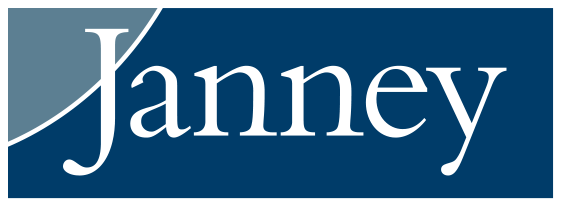Don’t put it off—it’s imperative that you put in a bit of time and thought now in order to ensure you protect your legacy and your loved ones when you are gone.
For example, after the saddening loss of vocal legend Aretha Franklin, it was learned that her $80 million estate had no will to guide the distribution of her assets, which leaves her family and loved ones now working through an ongoing legal process to determine how, where, and to whom her legacy will be distributed.
What Is a Will?
A will is the foundation of any estate plan— if you do nothing else in terms of estate planning, do this. It allows you to establish how you would like your property to be disbursed to your heirs after your death. In your will, you can also appoint an individual to assume the responsibilities of managing and settling your estate (executor). What happens if you do not have a will when you pass away? Your assets will be distributed according to your state law, which may not be aligned with your wishes.
Remember, a will is a legal document and the courts are typically disinclined to alter any of its terms. Therefore, it is imperative that your will be well thought out, detailed properly, and always kept up-to-date.
However, it’s also important to remember that a will is not the only means under which a decedent’s property changes ownership. Beneficiary designations on retirement accounts, annuities, and life insurance policies normally supersede provisions in a will, so these should periodically be reviewed and updated as needed. Also, assets which are owned jointly with a right of survivorship will pass to the surviving joint owner, even if the will says otherwise. That’s also true for accounts where the account owner has named a “transfer on death” or TOD beneficiary. Finally, any assets owned by a trust will be governed by the terms of the trust rather than the will, even if both were created by the same person.
There are also a number of other important pieces of estate planning to consider depending upon your individual needs and preferences.
Durable Power of Attorney
A durable power of attorney (DPOA) can be appointed in order to help protect your assets should you become physically or mentally incapable of doing so. By authorizing a trusted individual as your DPOA, they are permitted to do things such as pay bills, oversee your investments, collect benefits, and file taxes. However, a DPOA ceases to have any validity after your death, so the person that you appoint may be unable to do anything with your assets until they are appointed executor (assuming that you have the same person performing both jobs).
Health Care Power of Attorney/ Advance Declaration of Health Care/Living Will
Every state allows you to designate someone who can make medical decisions for you if you can’t communicate with the doctors. And, you can make your wishes known regarding the kind of care you might want withheld if you were in a terminal condition (such as a feeding tube, continuation of certain medications, etc.). Although this is an especially difficult topic to consider when you are well, it can be even tougher for your loved ones to sort out if you’re no longer able to communicate with them.
Trusts
A trust can provide a potential solution to problems that can arise where one or more heirs is unable to manage their own money or might lose governmental benefits because they receive an inheritance. Trusts offer a level of asset protection that can be tailored to fit particular circumstances. Trusts can also offer tax advantages to both their creators and beneficiaries. However, the rules and laws concerning trusts are very complicated and can be confusing, therefore working with the right professionals for their advice and guidance is critical to ensuring that your plan is always aligned with your best interest.
Insurance Planning
Insurance is an essential part of an estate planning strategy. You can use life insurance to replace lost income, pay inheritance taxes, fund a succession plan, pay off debts, or replace the amount given to a charitable remainder trust.
Charitable Giving Strategies
Some investors may want to incorporate charitable giving into their estate plan, to create their legacy through philanthropic efforts. We can help realize your intentions, provide you options for funding these goals, and work closely with you and your family, your attorneys, and other advisors to ensure your objectives are being pursued in a tax-efficient manner, in your best interest, and with minimal effort on your part.
Business Succession Planning
If you are a business owner, it’s important to have a business succession plan outlined and in place in order to ensure your business lives on past your lifetime, and in the ways that you intend for it to. A few things to consider are the heirs
whom you will pass the business on to and the knowledge they have of the business, as well as determining whether your business will have sufficient capital to last through the transition. We can help you assess and address these and other concerns
to help protect your business through generations.
Working With Janney
Depending on your financial needs and personal preferences, you may opt to engage in a brokerage relationship, an advisory relationship or a combination of both. Each time you open an account, we will make recommendations on which type of relationship is in your best interest based on the information you provide when you complete or update your client profile.
When you engage in an advisory relationship, you will pay an asset-based fee which encompasses, among other things, a defined investment strategy, ongoing monitoring, and performance reporting. Your Financial Advisor will serve in a fiduciary capacity for your advisory accounts.
For more information about Janney, please see Janney’s Relationship Summary (Form CRS) on www.janney.com/crs which details all material facts about the scope and terms of our relationship with you and any potential conflicts of interest.
By establishing a relationship with us, we can build a tailored financial plan and make recommendations about solutions that are aligned with your best interest and unique needs, goals, and preferences.
Contact us today to discuss how we can put a plan in place designed to help you reach your financial goals.
About the author

Related Articles
-
Estate Planning
Window of Opportunity: Leveraging the Estate and Gift Tax Exemption
The estate and gift tax exemption limit is currently at a historical high. In anticipation of a s... -
Estate Planning
Should you Consider a Spousal Lifetime Access Trust?
Couples may consider the use of a Spousal Lifetime Access Trust (SLAT) in order to leverage the c... -
Estate Planning
Estate Planning for Procrastinators
Sometimes a serious illness or health scare prompts people to take a hard look at their estate pl...




